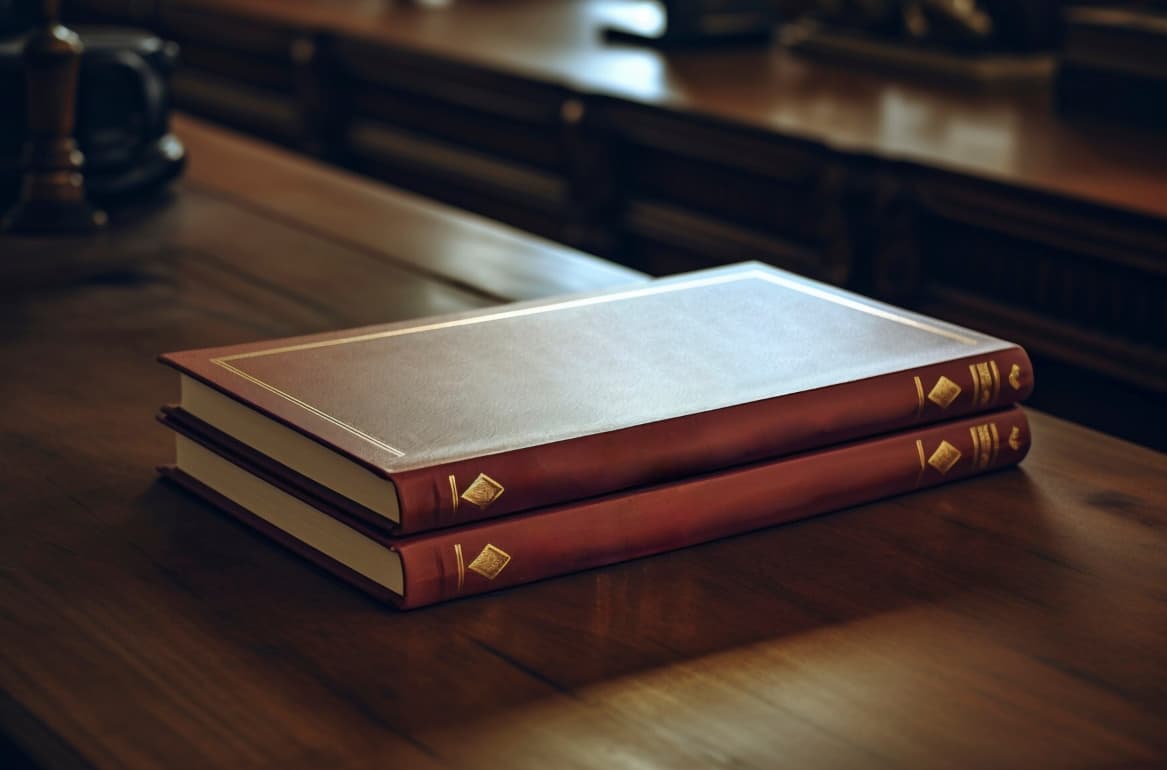Hey there! Ever heard of contestation DC-2206-7476? Don’t worry if it sounds like a mouthful – we’re here to break it down for you.
This special legal case has been making waves, and today we’re going to dive deep into what it’s all about.
Imagine you’re playing a game, and you think the referee made a bad call. What do you do? You challenge it, right?
Well, contestation DC-2206-7476 is kind of like that, but in the world of law and government stuff.
It’s a way for people or companies to say, “Hey, I don’t think that decision was fair. Can we take another look?”
This particular case, contestation DC-2206-7476, is super important because it might change how similar cases are handled in the future.
It’s like when a big sports match sets new rules that everyone follows afterward.
Contestation DC-2206-7476

In this article, we’re going to explore every nook and cranny of contestation DC-2206-7476.
We’ll look at what it is, why it matters, who’s involved, and what might happen next.
By the end, you’ll be an expert on this topic – even if you’ve never set foot in a courthouse!
So, grab a comfy seat and get ready to learn about one of the most talked-about legal challenges of our time. Trust me, it’s more exciting than it sounds!
What is Contestation DC-2206-7476?
Let’s break this down into bite-sized pieces:
- Contestation: This is a fancy word for a challenge or dispute. It’s when someone says, “I don’t agree with this decision, and I want to fight it.”
- DC: This likely stands for “District Court.” Think of it as the playground where this legal battle is taking place.
- 2206: This number probably tells us when the case started. It might mean the year 2022.
- 7476: This is just a special number to keep track of this specific case. It’s like a name tag for the contestation.
Put it all together, and Contestation DC-2206-7476 is a unique legal challenge that’s happening in a specific court. It’s got its special code name, just like secret agents do in movies!
Key Components of Contestation DC-2206-7476
Now, let’s look at the main parts of this contestation. It’s like taking apart a puzzle to see how it works:
- The Challenge: Someone (we’ll call them the challenger) is saying, “I think a mistake was made, and I want it fixed.”
- The Decision Being Challenged: This is the thing the challenger doesn’t agree with. It could be a court ruling, a government decision, or even a company policy.
- The Reason for the Challenge: The challenger needs to explain why they think the decision was wrong. They can’t just say, “I don’t like it.” They need good reasons.
- The Evidence: Just like in detective shows, you need proof to back up your claims.
- The Process: There’s a whole set of steps to follow, kind of like a recipe for making a legal challenge cake.
The Significance of Contestation DC-2206-7476
Why should we care about this case? Well, it’s pretty important for a few reasons:
- It Could Change Things: The outcome might affect how similar cases are handled in the future. It’s like when a new playground rule changes how everyone plays the game.
- It Might Affect Lots of People: Depending on what the case is about, it could impact many folks, not just the ones directly involved.
- It’s Testing the System: This case is putting our legal system through its paces, making sure it’s fair and working properly.
- It’s Getting Attention: People are talking about this case, which means it’s touching on issues that many care about.
The Process of Contestation DC-2206-7476
Let’s walk through how this contestation works, step by step:
- Filing the Paperwork: The challenger fills out special forms to start the process.
- Checking It’s All Correct: The court looks over the paperwork to make sure everything’s in order.
- Telling Everyone Involved: The court lets all the important people know about the challenge.
- The Other Side Responds: The people being challenged get a chance to explain their side.
- Gathering Proof: Both sides collect evidence to support their arguments.
- The Big Day in Court: There might be a hearing where both sides present their case.
- The Decision: After thinking it over, the judge or decision-maker gives their answer.
- What Happens Next: If someone’s not happy with the decision, they might be able to challenge it again in a higher court.
Legal Grounds for Contestation DC-2206-7476
Now, you can’t just challenge something because you don’t like it. You need good reasons. Here are some common ones:
- Someone Made a Mistake: Maybe the original decision-makers got their facts wrong.
- The Rules Weren’t Followed: There are special procedures that need to be followed. If they weren’t, that’s a problem.
- It’s Not Fair: Sometimes, a decision might go against the basic principles of fairness.
- New Information Came to Light: If important facts were discovered after the original decision, that could be grounds for a challenge.
- The Law Was Misunderstood: Sometimes, the people making decisions might not interpret the law correctly.
Parties Involved in Contestation DC-2206-7476
Think of this like a play with different actors. Here’s who’s typically involved:
- The Challenger: This is the person or group who’s saying, “Hey, I think this decision is wrong.”
- The Defender: These are the folks who made the original decision and are now defending it.
- The Judge or Decision-Maker: This is the referee who’ll decide who’s right.
- Lawyers: Both sides usually have legal experts to help them make their case.
- Witnesses: These are people who might have important information about the case.
- Experts: Sometimes, special know-it-alls are brought in to explain tricky parts of the case.
The Importance of Documentation in Contestation DC-2206-7476
In this kind of legal challenge, paperwork is super important. It’s like keeping a diary of everything that happens. Here’s what kind of documents matter:
- The Original Challenge: This is the first paper filed to start the whole process.
- Evidence: Any proof that supports either side’s argument.
- Expert Reports: If any specialists looked at the case, their thoughts are written down.
- Witness Statements: What people say about what happened.
- Court Transcripts: These are word-for-word records of what was said in court.
- Previous Decisions: If there were other similar cases in the past, those decisions might be important.
Keeping all these papers organized is crucial. It’s like having a really well-organized backpack for a big hike – you want to be able to find what you need quickly!
Potential Outcomes of Contestation DC-2206-7476
What could happen when all is said and done? There are a few possibilities:
- The Challenge Wins: The original decision gets changed or thrown out.
- The Challenge Loses: Everything stays the same as it was before.
- A Compromise: Sometimes, both sides agree to meet in the middle.
- A Do-Over: The case might get sent back to be looked at again from the beginning.
- A New Rule: The outcome might create a new way of doing things for future cases.
Challenges in Contestation DC-2206-7476
Going through this process isn’t easy. Here are some of the tough parts:
- It’s Complicated: There are lots of rules to follow, and they can be hard to understand.
- It Takes Time: These things don’t happen overnight. It can take months or even years.
- It Can Be Expensive: Paying for lawyers and court fees can cost a lot of money.
- It’s Stressful: Waiting for a decision and arguing your case can be really nerve-wracking.
- The Outcome Is Uncertain: You never know for sure how things will turn out until the very end.
The Role of Precedent in Contestation DC-2206-7476
In the legal world, what happened in the past can be super important. This is called “precedent.” Here’s why it matters:
- Learning from History: Courts look at how similar cases were decided before.
- Keeping Things Fair: If one case was decided a certain way, it helps make sure similar cases are treated the same.
- Making New Rules: Sometimes, a case like Contestation DC-2206-7476 can set a new precedent for the future.
- Changing Old Rules: If the world has changed, a new case might update an old way of doing things.
Public Interest and Contestation DC-2206-7476
Sometimes, a legal case isn’t just about the people directly involved. It can affect lots of other folks too. Here’s how:
- Big Impact: The decision might change things for a whole group of people.
- Hot Topic: If it’s about something many people care about, it might be in the news a lot.
- Changing Policies: The outcome could make the government or companies change how they do things.
- Education: It might help people learn more about their rights and how the law works.
Technology and Contestation DC-2206-7476
Even the law is going high-tech these days! Here’s how technology might be part of this case:
- E-Filing: Lawyers can send documents to the court over the Internet.
- Virtual Hearings: Sometimes, people can go to court without leaving their homes, using video calls.
- Digital Evidence: Things like emails or social media posts might be important proof.
- AI Helpers: Smart computer programs might help sort through lots of documents quickly.
Ethical Considerations in Contestation DC-2206-7476
Doing the right thing is super important in legal cases. Here are some ethical things to think about:
- Telling the Truth: Everyone involved needs to be honest, even if the truth isn’t what they want.
- Keeping Secrets: Some information needs to stay private, even during a public case.
- Being Fair: Both sides should have an equal chance to make their case.
- Following the Rules: There are special rules for lawyers and judges, and they need to stick to them.
The Future Implications of Contestation DC-2206-7476
What happens in this case could affect things for a long time to come. Here’s how:
- Setting an Example: Other similar cases in the future might look to this one for guidance.
- Changing Laws: Sometimes, a big case like this can lead to new laws being made.
- Public Awareness: It might make more people interested in how our legal system works.
- Improving the Process: If any problems come up during this case, it might help make the whole system better for the next time.
Also Check:
Conclusion:
Wow, we’ve covered a lot about Contestation DC-2206-7476!
Let’s wrap it up:
- We learned that this is a special legal challenge with its unique code name.
- We saw how it works, from start to finish, and who’s involved.
- We talked about why it’s important and how it could affect lots of people.
- We looked at the challenges, the role of technology, and even the ethical stuff.
Remember, even though Contestation DC-2206-7476 might sound like a bunch of numbers and letters, it’s really about people standing up for what they think is right.
It’s about making sure our laws and rules are fair and work well for everyone.
Whether you’re a law buff or just curious about how things work, cases like this show us that our legal system is always changing and trying to get better.
Who knows? Maybe the next big case will affect something you care about!
So keep your eyes and ears open, and don’t be afraid to ask questions. After all, understanding how these things work is part of being an informed citizen.
And hey, next time someone mentions Contestation DC-2206-7476 at a party (okay, maybe that’s not likely, but you never know!), you’ll be the one who can explain what it’s all about!



